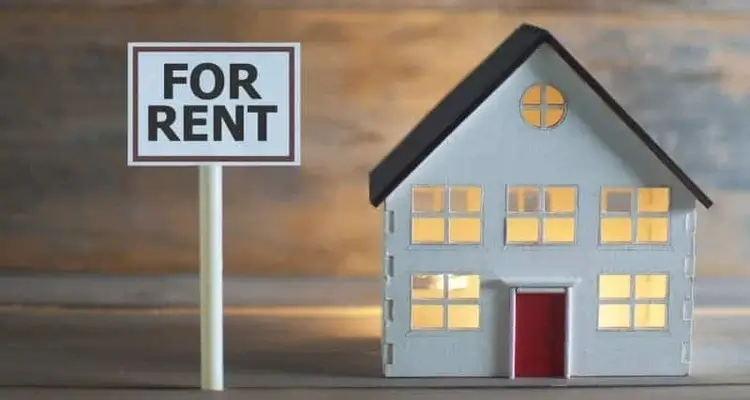Renting a home can be a practical choice, whether you’re moving to a new city, saving up for a home purchase, or just looking for flexibility.
With rising interest rates and fluctuating property prices, many are opting to rent.
This guide covers everything from finding the right property, understanding rental terms, and knowing current market conditions. We’ll include insights into today’s rental market and advice for making informed decisions.
The Current Rental Market
The rental market in 2024 remains competitive, especially in urban areas where rental demand is high. According to recent data from Realtor.com, the national median rent for a one-bedroom apartment stands at $1,500. Cities like San Francisco, New York, and Los Angeles continue to have some of the highest rents, while more affordable cities like Phoenix and Austin offer lower median rents. The high demand in metropolitan areas contributes to rental growth, with rents increasing by 5% year-over-year.
“With rising interest rates, more people are opting to rent rather than buy, adding pressure to already tight rental markets,” says Emma Ray, Senior Housing Analyst at UrbanDwelling Research.
Key Factors to Consider When Renting a Home
Renting a home involves several factors, from choosing the right location to budgeting and understanding lease terms. Here’s what to keep in mind:
1. Location and Neighborhood
- Proximity to Work and Amenities: Choose a location that reduces your commute and provides access to essential services like grocery stores, schools, and parks.
- Safety and Community: Research crime rates, school ratings, and overall community vibe.
2. Budget and Affordability
- Monthly Rent: As a rule, aim to keep your monthly rent to around 30% of your income. Factor in additional costs like utilities, parking, and internet.
- Security Deposit and Fees: Expect to pay a security deposit and, in some cases, application fees. Security deposits are typically one to two months’ rent.
3. Lease Terms and Conditions
Understanding lease terms can save you from unexpected issues down the line.
- Lease Length: Most leases are for 12 months, but shorter and longer leases are available.
- Pet Policies and Parking: Some rentals have pet restrictions or parking fees. Review all policies before signing.
Table 1: Average Monthly Rent by City (2024)
| City | 1-Bedroom Rent | 2-Bedroom Rent | Year-over-Year Change |
|---|---|---|---|
| New York, NY | $3,100 | $4,200 | +5.5% |
| San Francisco, CA | $3,200 | $4,400 | +6.0% |
| Los Angeles, CA | $2,300 | $3,100 | +4.0% |
| Phoenix, AZ | $1,500 | $2,000 | +3.5% |
| Austin, TX | $1,600 | $2,200 | +3.2% |
Finding the Right Rental Property
Searching for a rental property requires research and patience. Here are some useful steps:
- Use Reputable Websites: Websites like Zillow, Realtor.com, and Apartments.com list verified rentals with detailed information.
- Set Up Alerts: Most rental platforms allow you to set alerts, so you’re notified as soon as a property matching your criteria becomes available.
- Tour Properties: If possible, tour the properties in person. Virtual tours are also available for many listings, providing a preliminary view of the space.
Quote: “A thorough property search is crucial. Virtual tours can help, but an in-person visit will reveal details that photos may not,” says Alex Goodman, Leasing Specialist at SafeHome Realty.
Understanding Rental Applications and Approval
Most landlords have a structured application process to ensure they find responsible tenants. Key elements in rental applications include:
- Credit Check: Landlords typically require a credit score of 620 or higher, though this varies by area.
- Proof of Income: Applicants generally need to show proof of income, often in the form of recent pay stubs or tax returns.
- References: Rental references from past landlords can increase your chances of approval.
Negotiating Your Lease
Lease negotiation can help reduce costs or secure better terms:
- Negotiate Rent: In some cases, landlords may be willing to reduce rent if you sign a longer lease.
- Request Additional Amenities: Ask about including additional amenities like parking or pet fees in the monthly rent.
- Flexible Payment Terms: Some landlords offer flexible payment schedules or discounts for early payments.
Table 2: Common Lease Terms and Their Meanings
| Term | Meaning |
|---|---|
| Security Deposit | A refundable deposit held by the landlord to cover damages beyond normal wear and tear. |
| Rent Due Date | The date rent is due each month, typically the first of the month. |
| Late Fee | Fee applied if rent is not paid on time. |
| Utilities | Services like water, electricity, and gas, which may or may not be included in rent. |
| Subletting | Allowing another person to live in the rental, often requires landlord approval. |
Moving In and Setting Up
Once approved for a rental, prepare for a smooth move-in:
- Inspect the Property: Before moving in, conduct a walkthrough to identify any pre-existing issues. Document them to avoid deductions from your security deposit later.
- Set Up Utilities: Arrange for services such as electricity, water, and internet. Some landlords include utilities in the rent, but this varies.
- Insurance: Renter’s insurance is inexpensive and protects your belongings in case of theft or damage. Some landlords may even require it.
Quote: “Renter’s insurance is often overlooked, but it’s essential for protecting personal belongings and liability,” advises Tom Clarke, Insurance Specialist at RentGuard Insurance.
Maintaining a Good Relationship with Your Landlord
Keeping a positive relationship with your landlord can lead to easier lease renewals, timely repairs, and even favorable terms.
- Pay Rent on Time: Prompt payments help maintain a trustworthy reputation.
- Communicate Effectively: If issues arise, communicate respectfully with your landlord.
- Maintain the Property: Keeping the property in good condition not only preserves your security deposit but also fosters goodwill with the landlord.
Frequently Asked Questions
Is renting cheaper than buying a home?
Renting can be more affordable in high-priced housing markets or for those not ready for long-term commitments.
What credit score is needed to rent a home?
Most landlords require a credit score of 620 or higher.
Can I negotiate my rent?
Yes, some landlords may negotiate, especially if you’re signing a long-term lease or renting in a slower market.
Do I need renter’s insurance?
While not always required, renter’s insurance is recommended as it protects your belongings and liability.
What does a security deposit cover?
It covers damages beyond normal wear and tear, unpaid rent, or other lease violations.
Are utilities included in rent?
This depends on the rental; some properties include utilities, while others require tenants to pay separately.
How do I find a rental with pet-friendly policies?
Use filters on rental websites for pet-friendly properties or inquire directly with landlords.
What happens if I break my lease?
Breaking a lease often incurs fees or forfeiture of your security deposit. Consult your lease agreement for specifics.
Final Thoughts on Renting
Renting a home is an important decision that requires careful consideration. From budgeting and finding the right property to negotiating lease terms and maintaining a positive landlord relationship, renters who understand their responsibilities and options will be better equipped to enjoy a stable, enjoyable rental experience.
















